Piper Hope
"The most euphoric moment was holding him. All of your worries, everything that’s ever happened to you or gone wrong, mistakes you’ve made – none of that matters at all. I stopped doubting myself when I held him."
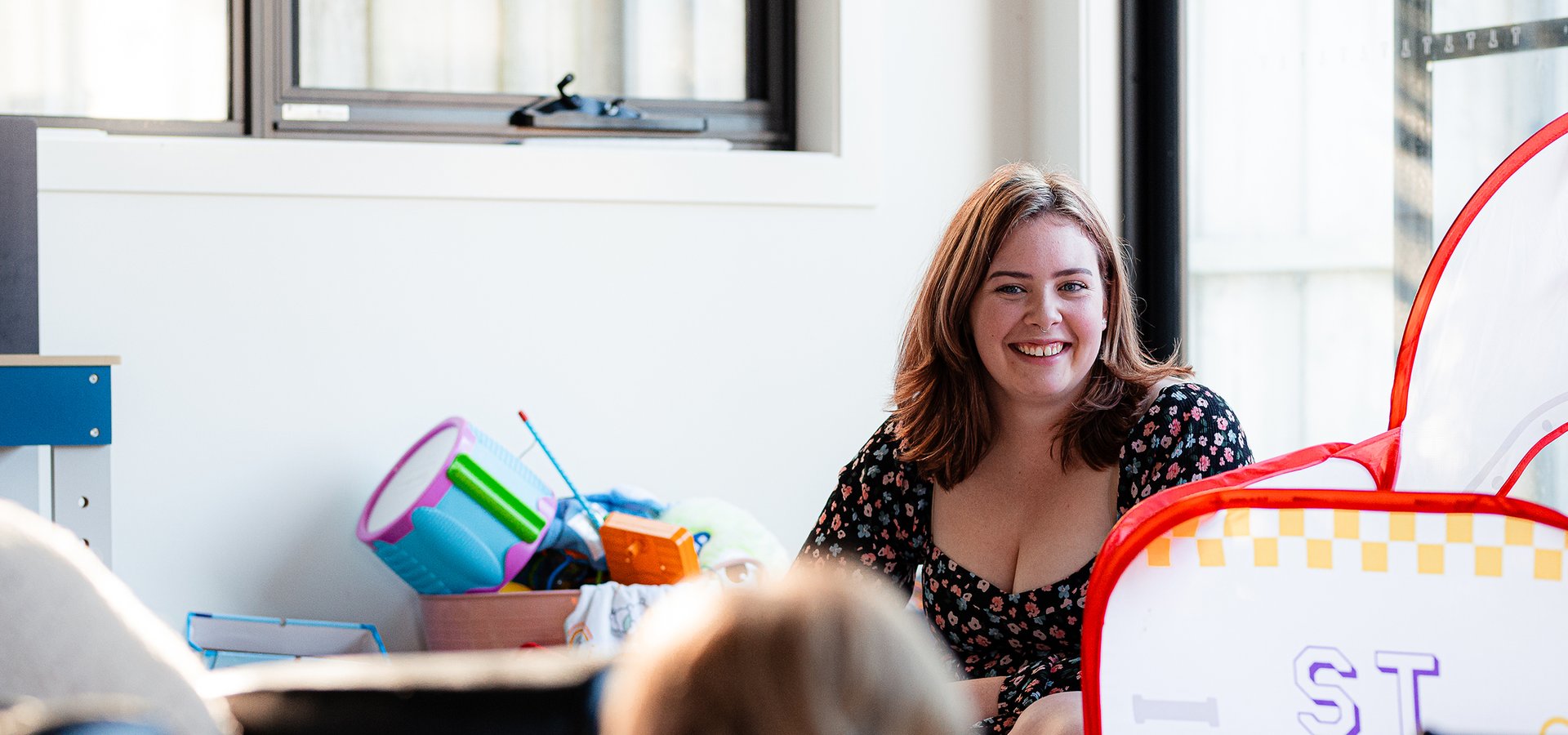
"I didn’t understand the spectrum of postpartum depression. It was the first time in my life I made sure to reach out for help. I took all the help I could. I loved him enough that I could do that."
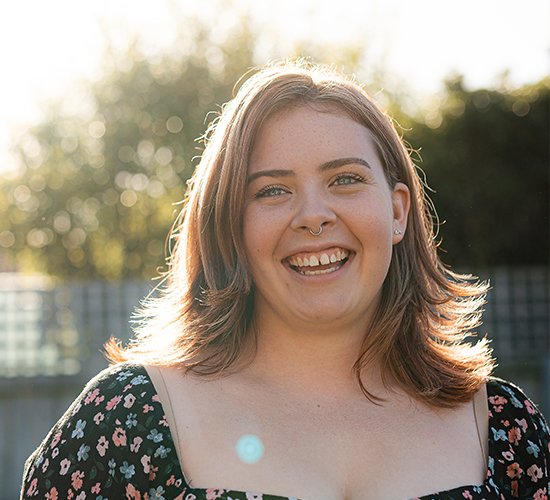
Content warning: This story deals with topics of mental health and trauma
Piper Hope says she found purpose when she had her son, Finley.
She hadn’t dreamt of becoming a parent, but the moment she found out she was pregnant was life-changing. “I felt like that was literally what I was put on earth to do,” she recalls.
Piper grew up in West Moonah, and she has family connections all over Tasmania, from Franklin to Devonport. She describes her family as “super local,” where “we knew everyone, and everyone knew us.” She loves Tasmania as her home, but like many young Tasmanians, dreamed of moving to the mainland to explore and build a career. “If you’ve never lived anywhere else, which I haven’t, you think, ‘I want to move because it’s so small.’ But then you go somewhere coastal, like Scamander, and you fall in love with Tassie all over again.”
Piper recently moved to Oakdowns, and she loves it there. Her neighbours are kind, generous, and always wave hello. Growing up, the cost of petrol made the trip from West Moonah to the beach a once-a-year special occasion. Now, she can take Finley to Bellerive and other beaches and parks regularly. For Piper, it was a mini fresh start in a new neighbourhood where she feels safe and at ease.
But it was a long journey to this feeling of home, one where Piper had to become an adult in every way, all at once.
Piper fell pregnant at age 19. She was working through a major mental health diagnosis at the time. Neither she nor her child’s biological father had planned on a baby. Even though she hadn’t felt destined to be a parent, she was certain the baby would bring joy and meaning to her life. But the challenge of figuring out what to do was too much, and she and her partner separated. Suddenly, she found herself 12 weeks pregnant with no permanent housing. By 15 weeks, she was in a women’s shelter.
Pregnancy can be tough at the best of times. It brings emotional and physical changes that can be both beautiful and harrowing. For Piper, bonding with her growing baby came naturally, but life surrounding the pregnancy was profoundly stressful. She had hyperemesis gravidarum, a condition that causes extreme and constant nausea and vomiting, until 28 weeks. “He was super healthy, but I was so sick,” she explains. “I was going to eat really healthy, exercise, take all my vitamins. But I couldn’t do anything. I couldn’t even stomach water.” She had been working on a Certificate III in community services, but she was too unwell to work or do her placement. She didn’t yet have a driver’s licence, and bus travel made her feel sick. She was on Jobseeker, but had to keep missing appointments, and going to pre-natal check-ups was a massive effort.
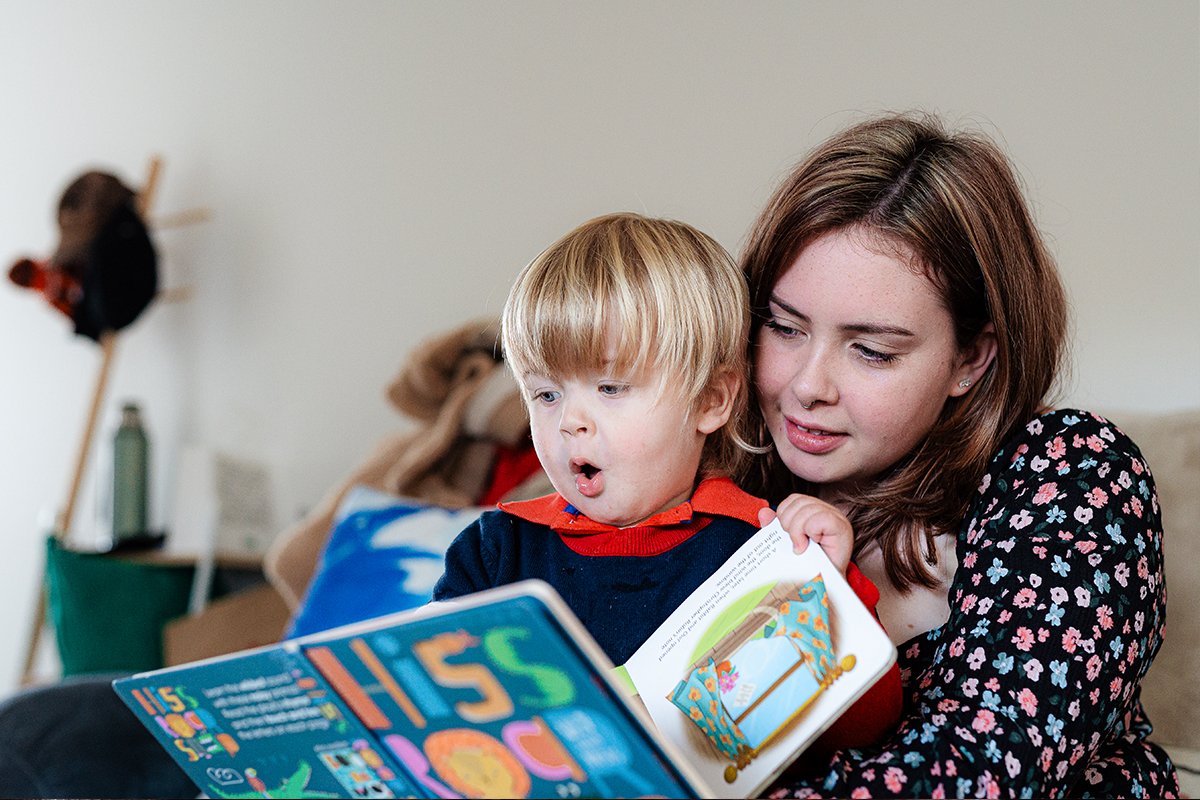
I was doing it all by myself. Mum, my stepdad, my sister and best friend were there, but I didn’t have a partner. I didn’t have any other friends. I didn’t have anyone that understood what I was going through.
Piper’s place at the women’s shelter was in an off-site unit, which provided privacy but was extremely isolating. There were cut-off times for visitors, and men could not visit at all, which meant she couldn’t see her stepdad. Her support network started to fracture. She had lost many of the friends she and her ex-partner shared. Many friends her age were out every night, which she felt too unwell to do. Family and close friends were going through their own hard times, and they struggled to be there for each other. At the same time, as a young pregnant woman, she felt judgement every time she went into public. “I’d be standing on the street waiting for a bus, and I could feel eyes in the back of my head. I thought, ‘The last thing I need is people having opinions about me.’”
The loneliness started to take a toll, and her mental health suffered. She had anxiety and insomnia. “I was doing it all by myself,” she reflects. “Mum, my stepdad, my sister and best friend were there, but I didn’t have a partner. I didn’t have any other friends. I didn’t have anyone that understood what I was going through.” At the same time, she was told she wouldn’t amount to anything because she didn’t have money or a house. “I was really questioning everything. I kept hearing that I’d be one of those people who dole-bludge off Centrelink. I started thinking, ‘I’m never going to get anywhere. I’m going to be in a shelter with a newborn.’ Imagine that. I was like, ‘I’m going to be the worst mum ever.’ But if I didn’t go into a shelter, I wouldn’t have had a house. It was the on-call shelter staff who helped me through a lot of it. It was a scary time.”
But then Piper got a lucky break. She found support in a staff member at the shelter, who was relentless on her behalf. “She was amazing. She said, ‘I’m not letting you leave this place until you have a house.’ I wouldn’t have gotten through that without her.” A spot came up and she was able to move in just days before her due date. The only furniture she had was one pink chair. Her family and the shelter helped her organise and move a few other bits and pieces, and then, she started having contractions.
It was a long and difficult labour. “There was one midwife who sat with me. I think I could have broken her hand with how hard I was squeezing it. I was going to have him ‘any second now’ for two to four hours. It was ridiculous.” And then Finley arrived. “The most euphoric moment was holding him. All of your worries, everything that’s ever happened to you or gone wrong, mistakes you’ve made – none of that matters at all. It’s the first time I’ve ever felt that. I stopped doubting myself when I held him. I wish I could relive that over and over, because it was the best moment of my entire life.”
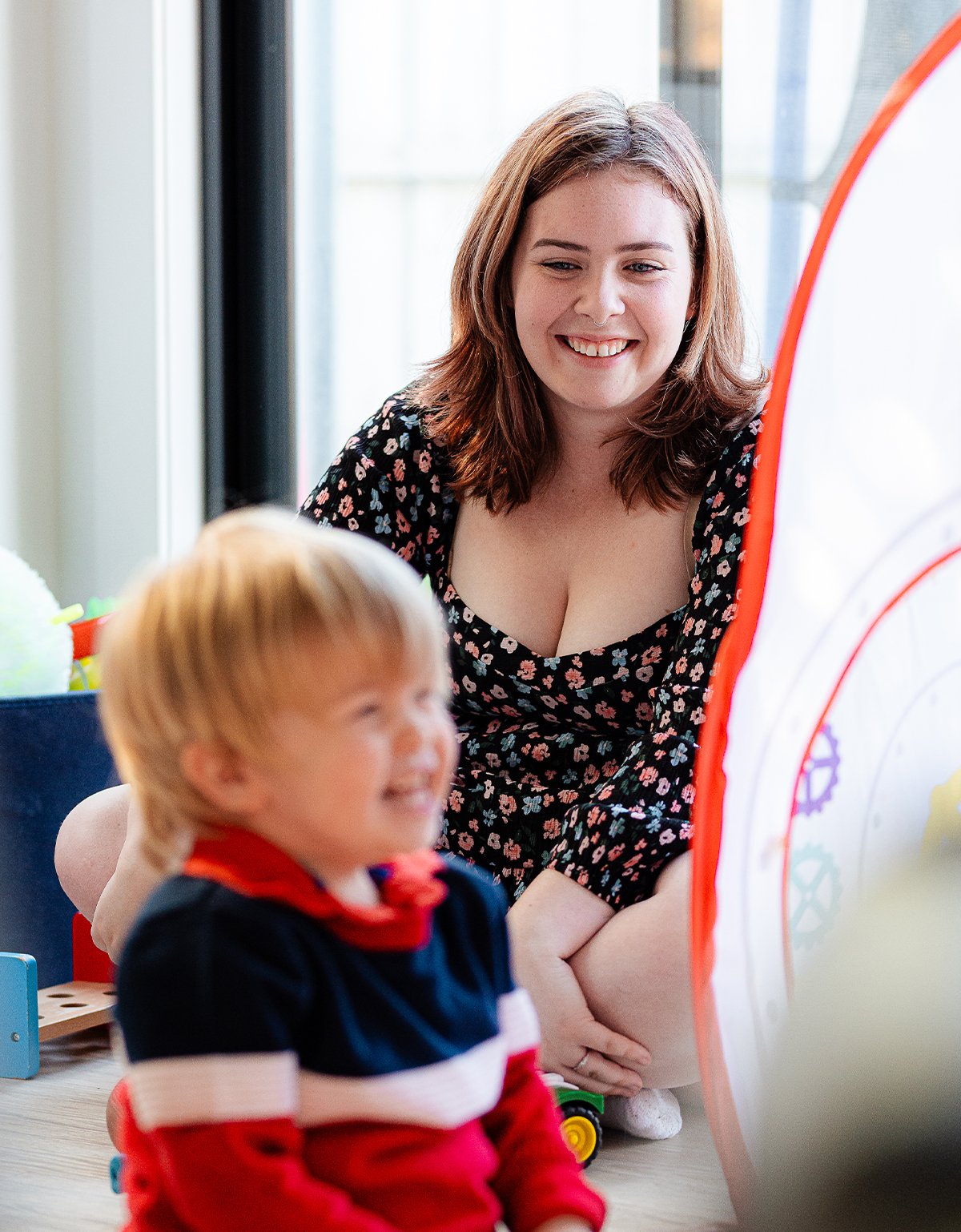
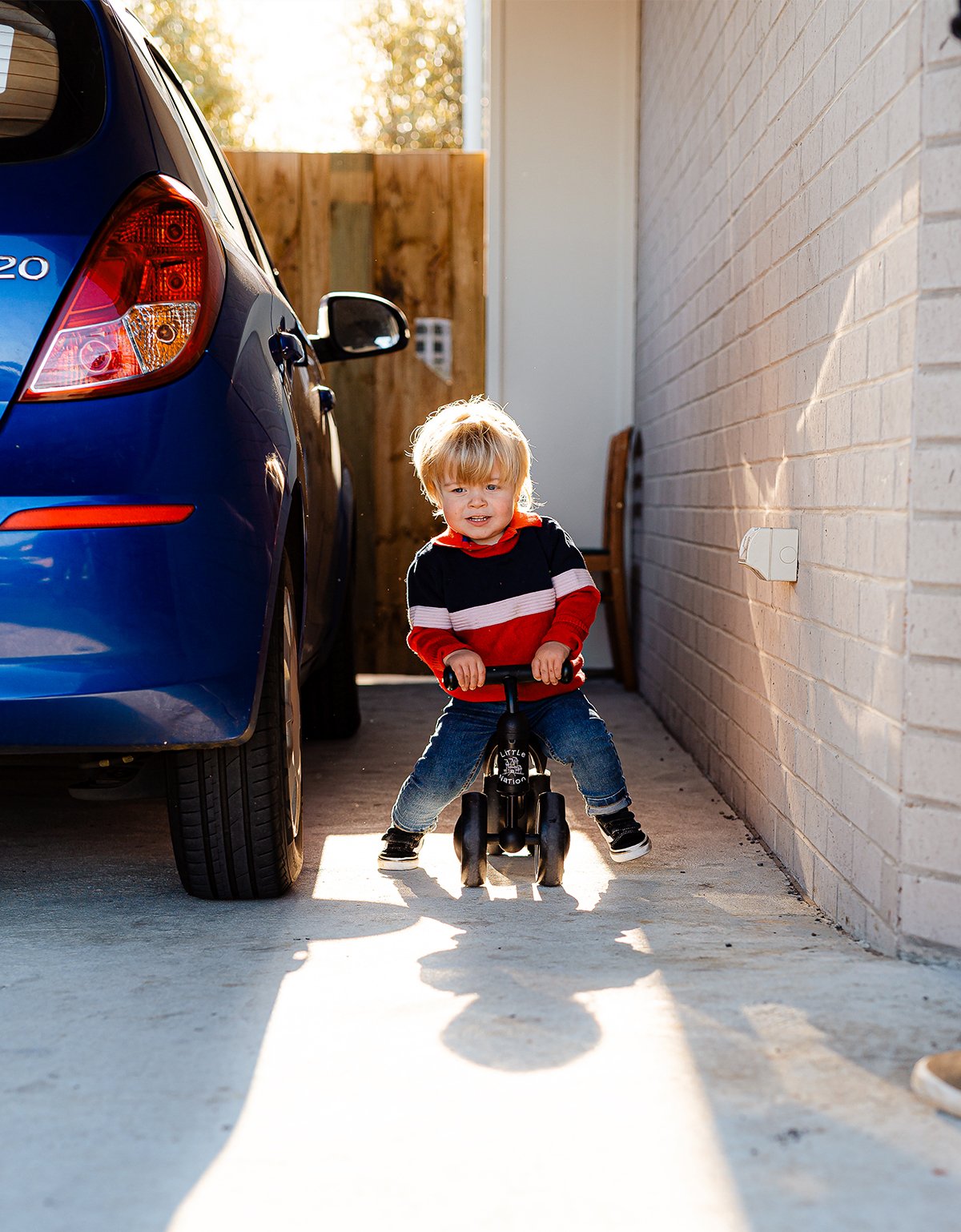
Piper fell in love with Finley instantly. But solo parenting with a newborn was hard. Piper had never lived on her own before. It was her first time having sole responsibility for things like household bills. She was terrified something would happen to Finley, constantly worrying that if she slept, she wouldn’t hear his cries. So she didn’t sleep. She became fixated on following all the best health advice and was overcome with anxiety when she couldn’t stick to it. “I didn’t understand the spectrum of postpartum depression. There’s the side of not bonding with your baby, but for me, it was excessive worry. About eating the right things, drinking enough water. I was afraid for him to sleep alone, but they say not to co-sleep. Breastfeeding, for me, was super isolating. I loved it and wanted to so much, but I couldn’t do it anymore, mentally. That time sitting would be time I’d start thinking about my life, my childhood, what I’ve done, the trauma of the pregnancy. But I had it in the back of my head that breastmilk is the only milk he should have. It was a genuine fear of, if I didn’t do the right thing, my baby would die. It felt like I couldn’t breathe all the time. I knew I was doing a good job, but I felt like a bad parent, like I couldn’t do anything right.”
She sought support from her mother and her psychologist. “It was the first time in my life I made sure to reach out for help. I took all the help I could. I loved him enough that I could do that.” Her mother gave her advice that she now lives by: “if she’s worried she isn’t doing enough, that means she’s doing enough.”
Now, Piper has started to settle into parenthood and is more able to take things as they come. “My experience has been: have a routine, but don’t always expect it to go the way you plan.” She loves watching Finley learn about the world around him. “When you give them a lemon for the first time, it’s so fascinating,” she laughs. “Then they eat it, and it’s sour, and they’re like, ‘Why is this doing this to me? It looks really cool but it’s destroying me!’”
Piper has started to reframe her past, her future, and her relationship with herself. “Every mistake I make is a learning curve,” she says. “You can come from a poor neighbourhood and be a successful person. What you’ve done doesn’t define you. I have the possibility to do anything, because I created a human and went through labour and postpartum depression. I overcame that by myself – with help – but I did it.”
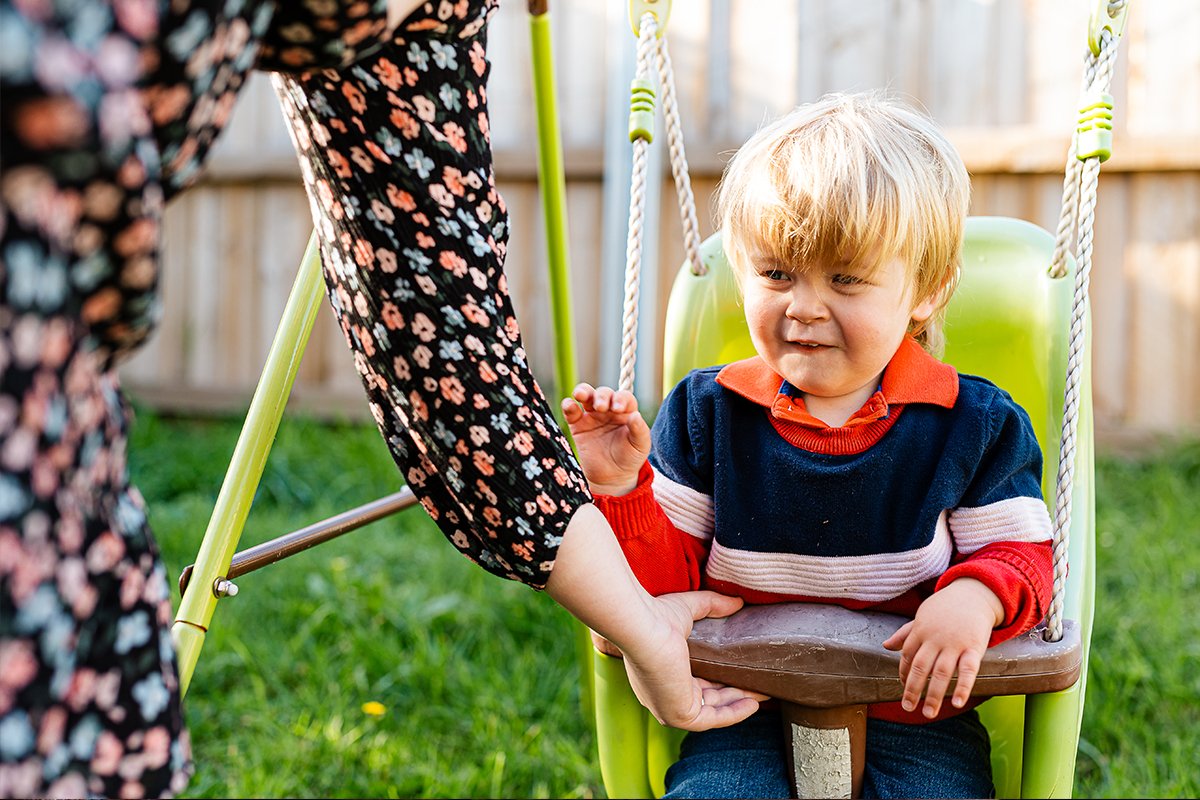
I’m so grateful for the experiences I’ve had. I can teach my son it’s ok to have bad things happen; just look at it from a different perspective. And then he can feel less alone, because he’ll know his mum’s been there too.
Piper’s philosophy is that you can be a mum — and more. “Just because you’re labelled as one thing – a mum – doesn’t mean that’s all that you are. You’re a mum, and. That’s your blank to fill in, no one else’s.” Now, one of her biggest goals is to be a working parent in a career that means something to her: “to work my butt off, because I want to show my kid, that’s how you do it. Having a kid gave me confidence.”
Piper juggles parenting, work, and her dreams of supporting parents with similar stories. She helped form a group at her local Child and Family Learning Centre that gave young parents a chance to get together and support each other, subtly weaving in mindfulness concepts she’s learned through her own mental health journey. After years of chipping away at it hour by hour, she has her driver’s licence. She has nested in her Oakdowns house and created a beautiful haven for Finley to grow up in – safe, loved, and with boundless opportunities to learn.
“Getting from A to B, I don’t know how I did it. Time and faith are what got me there. Believing in myself even when I didn’t. Stories are important for me. Knowing other people’s stories, that they went through a similar thing and still got somewhere. People my age, who have gone through similar things. If my mum wasn’t so open and honest with me about her own self-doubt and hardships, I wouldn’t have made it through. I don’t regret anything I’ve gone through, ever. I’m so grateful for the experiences I’ve had. I can teach my son it’s ok to have bad things happen; just look at it from a different perspective. And then he can feel less alone, because he’ll know his mum’s been there too.”
We worked with southern Tasmanian photographer Moss Halliday-Hall for this Tasmanian story.